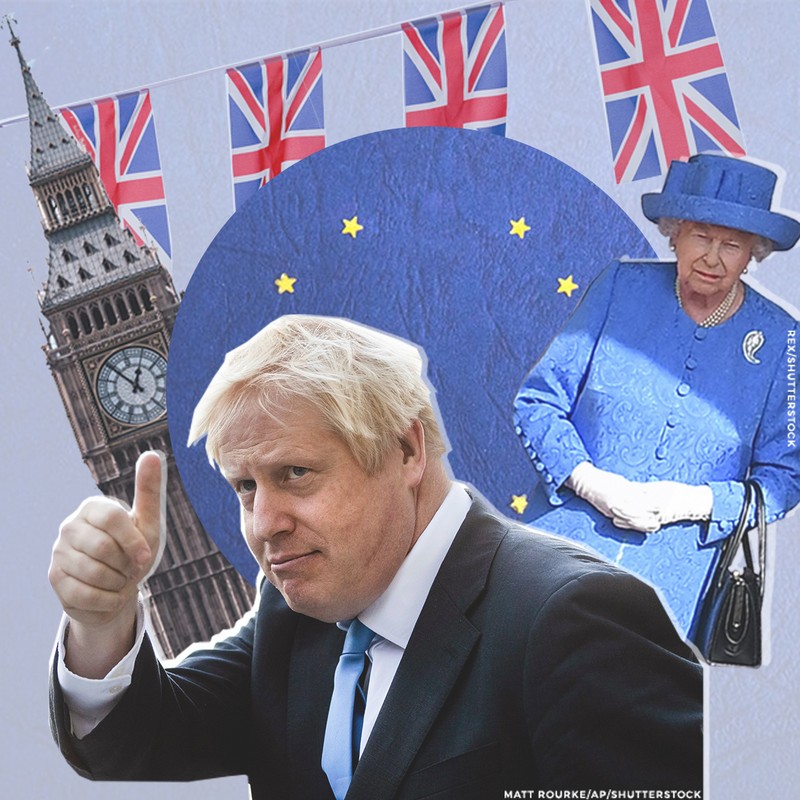Brexit: What You Need To Know
What’s the latest?
Setting yesterday’s supreme court judgement aside – more on that later – it has been a turbulent few weeks for Boris Johnson. On Monday, the prime minister jetted to New York for a series of meetings with European leaders held alongside the UN general assembly. Departing London, he appeared to warn reporters about managing their expectations and downplayed hopes of a “New York breakthrough”. While Johnson has played his Brexit cards very close to his chest, what we do know for certain is that the issue of the Irish border is still a problem. Although the EU has welcomed the possibility of alternatives to the much-maligned backstop, draft proposals put forward by the government last week were roundly trashed as “unacceptable”. The proposals had championed the use of technology to avoid checks at a hard border in Ireland – something the EU’s chief negotiator Michael Barnier said “objectively” had potential, before quickly adding: “[But] I don’t know how to inspect a cow with virtual methods.”
Are we still due to leave in October?
As far as the EU is concerned, Britain’s official exit date is 31st October. However, under the Benn Act – legislation passed by MPs ahead of Johnson’s now-defunct prorogation – the prime minister must request an extension to Brexit if he has not agreed a deal by 19th October. With the chances of securing a deal currently looking slim, Johnson has taken a somewhat contradictory line on this bill, claiming that he will both abide by the law while not requesting any delay to Britain’s scheduled departure. When quizzed on the Benn Act by reporters yesterday, the prime minister insisted the UK will leave the EU on 31st October “come what may”. This could mean Johnson is planning to avoid obeying the act’s requirements altogether. How he hopes to do this is unclear: he could simply ignore the law – a move which could land him in contempt of parliament – or he could resign to avoid delaying Brexit, but this seems unlikely. Alternatively, he could find a way of triggering a snap election before 19th October, perhaps by calling a vote of no-confidence in his own government. This would be an odd move, however, and one that could see Jeremy Corbyn installed as a caretaker PM.
What’s the Labour party’s position?
Things have been equally chaotic in the opposition camp. On Monday night, Corbyn defeated a motion calling for Labour to adopt an out-and-out remain position. Grassroots Labour activists had attempted to swing the party behind an “energetic” campaign for remaining in the EU. However, Corbyn’s more cautious approach prevailed: under the party’s draft Brexit policy, Labour plans to remain neutral on the issue of a second referendum after a general election. While the result of the motion suggests Corbyn has resisted calls to make Labour the out-an-out party of remain, it also feels somewhat out of step with the views of the rest of the shadow cabinet. Ahead of the motion’s defeat, both shadow foreign secretary Emily Thornberry and deputy leader Tom Watson called on Labour to abandon Brexit entirely. Indeed, even once the motion had been quashed on Monday night, shadow Brexit secretary Sir Keir Starmer claimed it was “highly likely” Labour would end up supporting remain anyway. The lack of clarity on the party’s Brexit stance has once again left Corbyn in the firing line. As one senior Labour figure put it: “If you need a flow chart to explain your position, you are going to lose a general election.”
And what about the supreme court ruling?
Yesterday, the supreme court unanimously ruled that Johnson’s advice to the Queen regarding the prorogation of parliament was unlawful. Announcing the verdict, supreme court president Lady Hale said Johnson’s advice was unlawful because it had the effect of preventing parliament from carrying out its constitutional role “without reasonable justification”. Johnson had failed to explain the necessity of an extensive five-week suspension, said Lady Hale, pointing out that most prorogations were between four and six days. As a result, the prorogation was immediately made void and the Commons Speaker announced that MPs would return to parliament this morning. Following Lady Hale’s verdict, opposition leaders quickly made clear they believed Johnson should step down. However, when quizzed by reporters on his possible resignation in New York, Johnson replied: "No, no, no."
How does this impact Brexit?
The supreme court made clear the decision was not about when and how the UK should leave the EU, but simply related to whether Johnson’s advice to the Queen was lawful. Nonetheless, the verdict has had one crucial impact on the UK’s path to Brexit. Namely, the decision has closed off one potential avenue for No 10 – the option of a further prorogation aimed at forcing through a no-deal Brexit. Given the stark nature of the supreme court’s ruling yesterday, it is safe to assume this option has been firmly taken off the table. Ultimately, the government’s next steps for Brexit depend upon whether Johnson chooses to abide by the Benn Act. Refusing to do so could land the prime minister in court for a second time.
Want to keep up to date with all the news in Westminster and current affairs across the globe? Sign up to receive The Daily News In Brief in your inbox each morning, or listen to the weekly podcast.
DISCLAIMER: We endeavour to always credit the correct original source of every image we use. If you think a credit may be incorrect, please contact us at info@sheerluxe.com.


